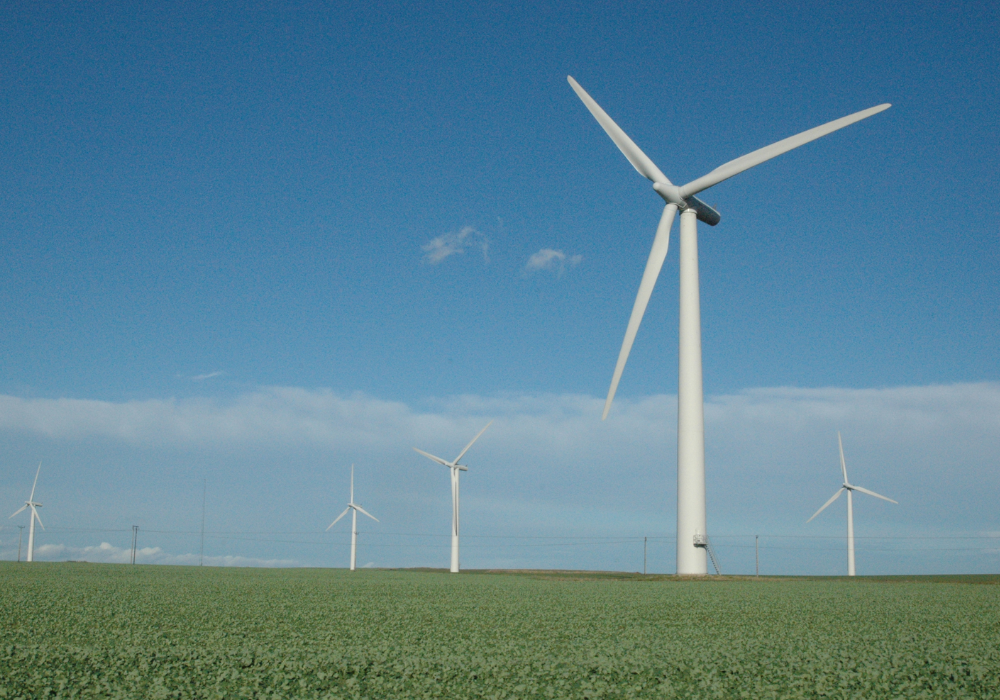The representing members of the Global Wind Energy Coalition for COP26 have sent an open letter to leaders of the G20 calling on them to show leadership in the climate crisis

The wind industry claims current net-zero pledges from G20 countries still put the world on a 2.4C global warming pathway (Credit: Wikimedia Commons/Tom Corser)
The countries of the G20 have been urged by CEOs of leading wind industry companies to “get real” on renewables.
The 25 CEOs, which are representing members of the Global Wind Energy Coalition for COP26, have sent an open letter to leaders of the G20 calling on them to show leadership in the climate crisis by raising national ambitions and urgently laying out concrete plans for increased wind energy production to replace fossil fuels.
While the letter acknowledges some progress has been made in the energy transition, it claims current net-zero pledges from G20 countries still put the world on a 2.4C global warming pathway, which is above the required levels to avoid the worst impacts of climate change.
The CEOs also highlight that wind energy and renewables installations are currently falling “well short” of the trajectory needed to meet international climate goals, requiring “urgent action to improve energy policies”.
“G20 member countries represent more than 80% of global energy-related carbon emissions – so the leaders of these countries hold the power and public duty to transform the world’s energy system,” said Global Wind Energy Council (GWEC) CEO Ben Backwell.
“These countries need to get serious about renewables and, in particular, wind energy as the clean energy solution with the most potential to help the world meet its Paris Agreement targets.”
Global wind capacity will fall “dramatically short” of the volumes required for net zero by 2050, say CEOs
The letter is signed by the leaders of the largest wind power companies – including Vestas Wind Systems, Siemens Gamesa Renewable Energy, Ørsted, SSE, RWE, and Mainstream Renewable Power, as well as associations representing the industry in the UK, Europe, Brazil, China, Mexico, South East Asia and South Africa.
The signatories highlight that the recent roadmap from the International Energy Agency (IEA) shows that annual wind deployment must quadruple from 93 gigawatts (GW) in 2020 to 390GW in 2030 to meet a net zero by 2050 scenario.
Both the IEA and International Renewable Energy Agency (IRENA) are aligned in the total wind energy capacity required for a net-zero scenario, which is compatible with a 1.5C warming pathway, foreseeing a need for 8,265GW and 8,100GW by 2050.
If current growth rates for wind energy persist, the letter argues that global wind capacity will fall “dramatically short” of the volumes required for carbon neutrality by 2050, with installation shortfalls of as much as 43% by 2050.
“G20 countries have huge amounts of untapped wind power potential that can fulfil significant portions of national electricity demand, but they are barely scratching the surface of what they can deploy,” said Rebecca Williams, director of COP26 at GWEC.
“With the current pace of wind power installations across the world, forecasts show that we will only install less than half of the wind power capacity needed to get to net zero by 2050.”
Wind industry CEOs recommendations to G20 countries
To reach the necessary level of wind power deployment for a net-zero scenario by the mid-century, the letter makes six recommendations to the G20 nations.
It asks them to raise ambition for wind power at the national level; implement effective policy and regulatory frameworks for procurement and delivery of renewable energy; commit to rapid build-out of clean energy infrastructure including grids and transmission; agree effective and credible carbon pricing mechanisms; align national and regional finance flows with benchmarks for a net 1.5C-compliant pathway; and develop cohesive and inclusive policies that dedicate public resource to the shift to a net-zero economy.
In the past 20 years, wind energy has demonstrated its ability to increase production exponentially while reducing costs, create millions of skilled jobs and spur large-scale infrastructure investment.
But the letter emphasises that achieving the scale and speed of deployment needed to tap into these benefits and achieve net-zero ambitions is unrealistic under the present “business as usual” conditions, and unachievable without “decisive and urgent policy change” across the G20 countries.
